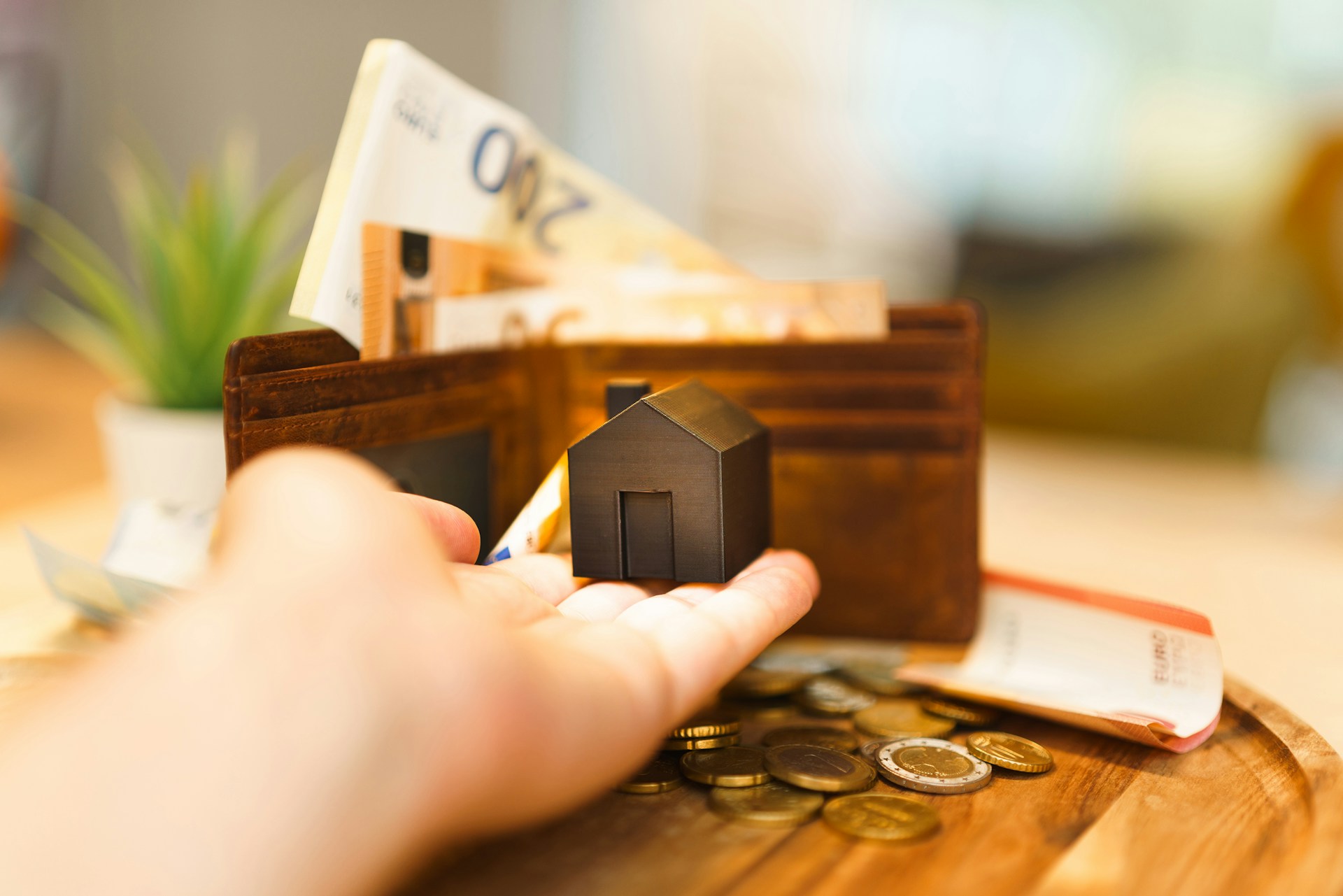For expatriates navigating the Dutch housing market, the decision regarding the mortgage fixed rate period can feel overwhelming. Indeed, choosing how long to secure your interest rate is arguably the single most difficult choice when financing your new home. This decision directly impacts your monthly budget, long-term security, and flexibility.
At ExpatEstate, we want to make this choice clearer. Therefore, we have outlined the possibilities and the financial implications. We will also provide four crucial questions you must ask yourself to help determine the proper fixed rate period for your unique situation.
Understanding the Fixed Rate Period in Dutch Mortgages
When you take out a mortgage in the Netherlands, you are essentially committing to a loan. This loan consists of two parts: principal repayment and interest payment.
The fixed rate period is the agreed-upon duration during which your interest rate remains constant. It gives you stable monthly costs, which is highly valued by many homeowners, especially new arrivals. Common options in the Netherlands include 5, 10, 15, 20, or even 30 years.
Stability vs. Fluctuation: Fixed vs. Variable Interest
The primary trade-off in this decision is security versus potential savings.
Fixed Interest Rate
With a fixed interest rate, you secure stable monthly costs throughout the chosen period. This means peace of mind; regardless of what happens in the global economy, your core housing expense stays the same.
However, locking in the interest rate comes with a major disadvantage. If future interest rates drop significantly, you cannot easily switch your mortgage to a new, lower scheme without paying a substantial penalty (a boete).
Variable Interest Rate
With a variable interest rate, you are not protected against sudden interest increases. Your monthly costs could fluctuate noticeably. Conversely, you benefit immediately if market rates decrease.
While a variable interest rate may seem cheaper initially, it remains to be seen whether it averages out lower than a fixed rate over the entire term. You must ask yourself: Can I financially cope if interest rates rise substantially in the future? Choosing a variable rate fundamentally depends on your attitude towards risk and your current financial security.
The Core Dilemma: Security Comes at a Price
The longer your interest rate remains fixed, the more security you are buying. Naturally, this security comes at a cost. Long fixed periods (like 20 or 30 years) generally carry a slightly higher interest rate than shorter periods (like 5 or 10 years).
It feels wasteful to pay unnecessary costs. So, how do you determine if paying that premium for security will actually save you money in the long run?
What Happens at the End of the Fixed Rate Period?
Approximately three months before your current fixed rate period expires, your current mortgage lender will send you a new proposal. This proposal outlines new potential fixed periods and their corresponding interest rates. At this point, you can renew with them or switch to an entirely different lender, typically penalty-free.
Four Critical Questions to Guide Your Fixed Rate Period Choice
When determining the optimal fixed rate period, asking yourself these four questions can prove incredibly helpful.
Question 1: Can You Afford a Potential Rate Hike?
The interest rate at the end of your fixed period might be much higher than what you are currently paying. You must prepare for this possibility.
Let’s illustrate this with a practical example:
| Mortgage: €500.000 | Current Interest Rate | Monthly Payment (Gross) | Rate After 5 Years | Monthly Payment After 5 Years (Gross) |
| 5 Years Fixed | 4.0% | €2,387 | 6.0% | €2,998 |
| 10 Years Fixed | 4.5% | €2,533 | 4.5% | €2,533 |
Fixing the rate for 10 years costs you an extra €90 per month (€5,400 total) during the first five years.
However, if rates jump to 6.0% after five years (in the 5-year fixed scenario), your new monthly payment soars to €2,998. That is €611 per month more than you were paying previously, and €465 more than the 10-year fixed option is paying.
Are you prepared to pay this potential increase? Even more importantly: Can your finances genuinely cope with this increase? If the answer is no, choosing a longer fixed period may be the sensible choice.
Question 2: What Are Your Long-Term Housing Plans?
If you plan to live in your home for many years, fixing your interest rate for a longer term often provides a significant benefit, especially in a market where rates are expected to rise. You secure a known cost for a predictable future.
Conversely, if you expect to move or sell the house within the next five to seven years, you might pay a needlessly higher interest rate if you choose a 20-year fix. When you sell your home, the mortgage must always be repaid.
A potential saving grace is the ability to transfer your existing interest rate conditions to your next property. This is particularly valuable if current market rates have increased significantly since you took out the original mortgage. Be aware, however: you must often stay with the same mortgage lender to use this option. We recommend checking if that lender is the best party to finance your next home before committing to a very long fix.
Question 3: Does Your Choice Affect Your Maximum Borrowing Capacity?
This is a crucial consideration, especially for expats seeking to borrow the maximum possible amount based on their income.
The Netherlands Authority for the Financial Markets (AFM) sets a notional interest rate. This is the rate lenders must use when calculating the maximum borrowing capacity for shorter fixed periods. This notional rate is often significantly higher than the actual market rate.
However, for a fixed rate period of 10 years or longer, the actual (lower) interest rate can be used for calculations.
Therefore, choosing a fixed rate of 10 years or more can often allow you to borrow a larger sum than if you chose a 5-year fixed period. If maximizing your loan is essential, opting for the longer fixed rate period is the smart strategy.
Question 4: Do You Plan to Make Large Extra Payments?
Many expats receive bonuses, large gifts, or inheritance and plan to pay down their mortgage quickly.
If you know you will repay your mortgage completely within 10 years, for instance, securing your rate for 20 years is simply not sensible. You would be paying a premium for security you don’t actually need, and you might incur penalties for early repayment (although most lenders allow penalty-free repayment of 10% to 20% annually). Match your fixed rate period to your expected repayment timeline.
Looking Ahead: Future Proofing Your Mortgage Decisions
Perhaps you plan to renovate, expand, or make your home more sustainable in the future. You might need to increase your existing mortgage to fund these plans.
Increasing Your Mortgage During the Fixed Period
If you decide to increase your mortgage after a few years, the remainder of your existing fixed rate period is taken into account when calculating the additional borrowing capacity.
If the remaining fixed period is less than 10 years, the AFM’s higher notional interest rate will be used for the calculation. Consequently, your total borrowing capacity will be lower.
The Solution: If you already anticipate needing to increase your mortgage later for renovations, it is wise to immediately fix the interest rate for a longer period, such as 15 or 20 years. This keeps the remaining term above that critical 10-year threshold, allowing the lender to use the lower actual interest rate for future capacity assessments.
Final Advice
Ultimately, there is no single right or wrong answer for the perfect fixed rate period. It is a deeply personal decision tied to your income stability, risk tolerance, and long-term residency plans in the Netherlands.
In today’s market (2025), where rates appear to be stabilizing, experts often suggest that a 10-year fixed period offers a good balance between reasonable cost and sufficient security. A 5-year period suits those who accept higher risk, while 20 or 30 years is perfect for those who require maximum security and plan to stay put indefinitely.






